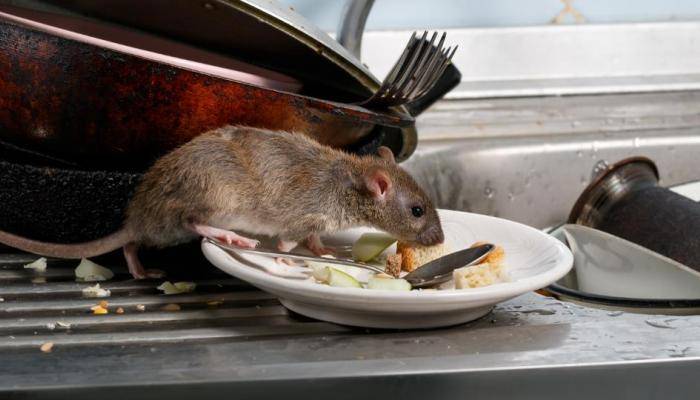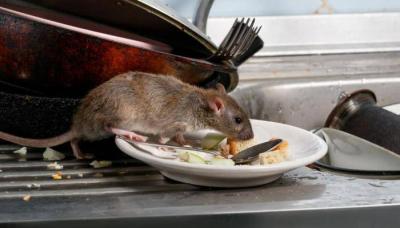An army of rats has invaded homes in a neighborhood in Paris in search of food after being deprived of their usual meals found in trash bins located in the parks and streets of the capital.
According to a report published by the French newspaper Le Parisien, the writer mentioned that the rats were deprived of the scraps of snacks in the gardens and the usual waste from the now deserted streets of the capital, leading to an increase in the hunger of the Parisian rats. In fact, many of them migrated to the basements of buildings and did not hesitate to approach closer to human dwellings to fill their stomachs.
Brown rat carcasses piled up in basements and alleys, as well as on bushes, on a Thursday in the city of La Courneuve, which is among the largest low-income housing projects in the Porte de Bagnolet area of eastern Paris.
The city inspector, who knows the alleys by heart, donned tall boots and rubber gloves before carrying a bucket filled with rat poison and bait, aiming to launch a campaign against them. Traps and bait were set up in strategic locations.
Kader Aissawi, one of the residents of La Courneuve responsible for the area, stated, "Since the lockdown, the rats have come closer, and it has become annoying. We saw them with our own eyes in broad daylight under our windows heading towards the trash bins. Some even entered the hallways, and I saw one under the stairs. I have never seen anything like this before."
He added that while rats are present throughout Paris, the Porte de Bagnolet area is undoubtedly one of the "main hotspots" in the capital.
For his part, the first deputy mayor, Paul-Maxime Sauvage, who is responsible for urban policy and the local, social, and environmental impact, emphasized that the rat problem is of great importance and "should not be taken lightly."
Moreover, the head of the rat control company B-HASH, Djerato Gena, indicated that they did not remain idle during the lockdown as the rodents head to where food is found, not just on the roofs of houses but also in the current corporate restaurants.
On the other hand, scientists are skeptical about the link between the increase in the number of rats in Paris and the lockdown. Aude Lali, a researcher at the Museum of Natural History and a specialist in rats, stated, "It is impossible to estimate the number of rats during normal days, and to claim that their number is 6 million seems exaggerated."
The writer inquired with Agnès Louvrain, the head of the Parisian Environmental Health Service responsible for the rat issue, whether the lockdown changed the lifestyle of the rats. The specialist responded that the lockdown affected human lifestyle as well as that of the rats, as human presence on the highways decreased, outings to parks declined, and the number of vehicles dropped, prompting the rats to adapt.




